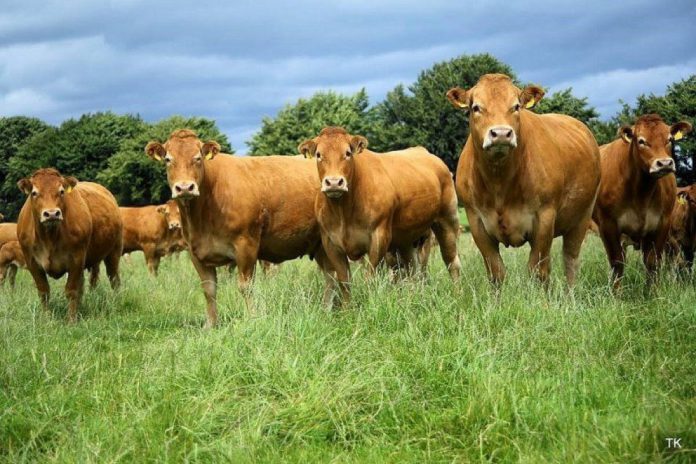Natascha Meunier, Beef HealthCheck/Parasite Control Programme Manager at AHI (Animal Health Ireland), has urged farmers to consider the benefits of its Parasite Control TASAH Programme.
In the body’s May 2023 bulletin, she writes about how anthelmintic resistance has become a “major” concern for the long-term sustainability of intensive livestock farming and has been shown to be widespread in Ireland.
Resistance is considered present on a farm when anthelmintics (wormers) no longer work effectively at killing the target parasite, she defined.
This effect, she warned, may not initially be noticed on the farm but will become more evident over time.
The resistance is present in the worms on the farm, which are in the animals and on the pastures, so both wormer treatments and pasture management need to be considered for control.
AMR
She described anthelmintic resistance as a “complex problem” and as management practices and risk factors “vary markedly” between farms, there is “value” in tailored veterinary advice, which is, as she pointed out, available under the Parasite Control TASAH.
This is a Rural Development Programme-funded programme initiated by the Department of Agriculture, Food and the Marine and managed by Animal Health Ireland.
It funds a free veterinary consult to discuss parasite control and faecal testing for gut worms.
Over 580 vets across the country are trained and currently participating in the Parasite Control TASAH programme.
So what format does it take?
Vets undertake a farm visit and review parasite control relating to that specific enterprise and make three recommendations to their clients to improve parasite control.
Moreover, they also take two faecal samples for worm egg counts, which farmers can use for monitoring or drench testing, and this is a practice that previous BEEP-S participants may be familiar with.
The programme, now in its second year, is open to all Irish cattle and sheep farmers, free of charge, and those who took part last year are eligible again in 2023.
Importance of consults
According to the AHI, last year, over 16,000 consults took place as part of the Parasite Control TASAH.
The most problematic parasites reported by cattle farmers were:
- Lungworm;
- Gut worms;
- Liver fluke.
For sheep farmers:
- Stomach and gut worms;
- Flystrike;
- Liver fluke.
Your vet’s role
Vets are playing an instrumental role in identifying a resistance problem on-farm or the factors that might be increasing the risk of this developing.
They can:
- Further advise where incorrect products are being used for targeted parasites;
- Inform about which parasites might be problematic on the farm;
- Optimise dosing and handling;
- Advise on treatments and drug choice;
- Implement monitoring, testing, and quarantine protocols;
- Help optimise the timing of faecal egg tests.
Faecal egg test results
Many of the faecal egg tests from last year showed low egg counts for worms, especially early in the grazing season.
These can provide useful information on whether treatments are necessary in animals being monitored, along with average daily gains.
Alternatively, Meunier added, they can give an indication of whether the treatments are effective when used in the form of a drench test.
One risk of buying in animals is bringing in resistant worms and other infectious diseases onto the farm, she highlighted in the bulletin.
“The majority of Irish farms have animals moving onto the farm, but less than half of those who took part in the programme last year had any form of quarantine or treatment plan for these animals.”
“To lessen the risk of buying in resistant worms, animals should be treated and housed before being released onto pastures that have been recently grazed by the home stock.”
“This is so that any potentially resistant worms will be diluted by the worm larvae already present on the pastures.”
Worm resistance
The risk of worm resistance, she advises, increases with the frequency of treatments.
Therefore, these should be used only when necessary, particularly when low levels of worms are expected, such as during dry summers or on ‘clean’ pastures such as reseeded fields.
“The parasite treatments should be adapted to the environmental conditions and considering the risk of animals developing clinical disease or production losses.”
“Pasture management has an important role to play in minimising the burden of parasite eggs and larvae on the grass.”
“Many of the currently advised best practices for parasite control have already been embraced by Irish farmers by the time of the consult, which is encouraging.”
“However, there is also room for further progress due to improved understanding of the mechanisms of drug resistance.”
Sign up
It is hoped that this programme will encourage farmers to consider making changes that will improve sustainability over the long term.
Farmers can register for the Parasite Control TASAH by clicking this link.
Previously registered farmers should follow up with their vet to book their consult ahead of the programme’s closing date of October 31st, 2023.
To sign up, fill out the registration form, which requires your name, email address, mobile number, flock/herd number, enterprise type, address, and the name of your nominated PVP (private veterinary practitioner).
Read our previous farming news article on: Understanding your Beef Health Check report: Liver abscesses ‘unrelated to liver fluke itself’





